I encouraged Tinh to compose in a new direction. So Tinh changed. From sending poems that no one published, Tinh's poems now have a place in major newspapers and magazines such as the Literature and Arts newspaper of the Vietnam Writers Association and the Military Literature and Arts magazine.
I encouraged Tinh to publish her first publication, but Tinh was afraid that it was “not ripe yet”. I joked, let it ripen first, then it will gradually ripen. I again “interfered” and selected from 120 poems, edited into “The House Filled with Laughter” with a total of 56 poems. In “Confessions” in the poetry collection, Tinh confessed: “I came to poetry from the silent call of my heart, especially when I came across the “message” of poet Do Thanh Dong: “A poet is someone who gathers the pain of others into his own pain”. That’s right, to be a poet, one must have a heart, know how to love and know how to feel the pain of others. This has been proven by the flow of love, which is the deep love for one’s homeland, family, friends, and students in “The House Filled with Laughter”, a poetry publication published by the Writers’ Association Publishing House in May 2025.
In 2018, leaving the Literature class, Ngo Mau Tinh became the vice principal and taught literature at Lam Thuy Ethnic Boarding Primary and Secondary School (Le Thuy). Having been attached to this poor land for many years, where the residents are mainly Bru-Van Kieu people, he is not only a dedicated teacher but also a companion of his fellow countrymen in charity activities.
During his trips to sow letters in the highlands, in the eyes of his students, in the sound of howling winds and red sunsets, his poems were formed, quietly, persistently and imbued with humanity. The collection of poems “The House Filled with Laughter” therefore has its own unique character, both truthful to life and carrying the surreal color of postmodern poetry.
The collection of poems impresses not only by its emotional quality but also by its artistic form rich in associations. It is a world of illogical, suggestive, paradoxical but emotional images. The images of “the ceiling like a plowed furrow”, “grandmother’s eyes searching for the light of the umbilical cord” or “father’s eyes filled with alluvium in the flood season”… are all flashes of real life, but filtered through the lens of the soul and poetry. The postmodern quality is expressed in the way the poet breaks the traditional structure, assembles memories, emotions, and images into open layers of meaning, suggesting rather than revealing intentions.
According to critic Hoang Thuy Anh, Ngo Mau Tinh's poetry "has a pure, innocent beauty of emotions, in the friction and experience with the land where he was born and raised, where people and nature seem to blend and lift each other up." It is this characteristic that creates a poetic space that is both familiar and new, both rustic and haunting.
But beneath that layer of “illusory language” is a deep vein, the vein of family and homeland. That is the soul of the collection of poems. The feelings for grandmother, mother, father and childhood memories are not revealed like an autobiography, but are imbued in each poetic image, each rhythm of words, each quiet breath. The image of the grandmother is built both real and dreamy, opening up a field of free association in the reader's mind: "The ceiling is like a field/dry furrows/her eyes search for the light stalk/gradually fading each day" (My Grandmother). The grandmother appears not only as the keeper of memories but also as the one who cultivates crops in dreams: "in the whispers of her dreams/crops grow rapidly/warm and fragrant along the sunny riverbank" . The image of the grandmother is no longer a specific old person, but a part of the land, a part of the air of the countryside. She sows the crops, measures the wind with her fingers, and leaves as light as mist. The photo poem "the shirt made of rain" makes us think of her figure as a part of nature, fragile yet eternal.
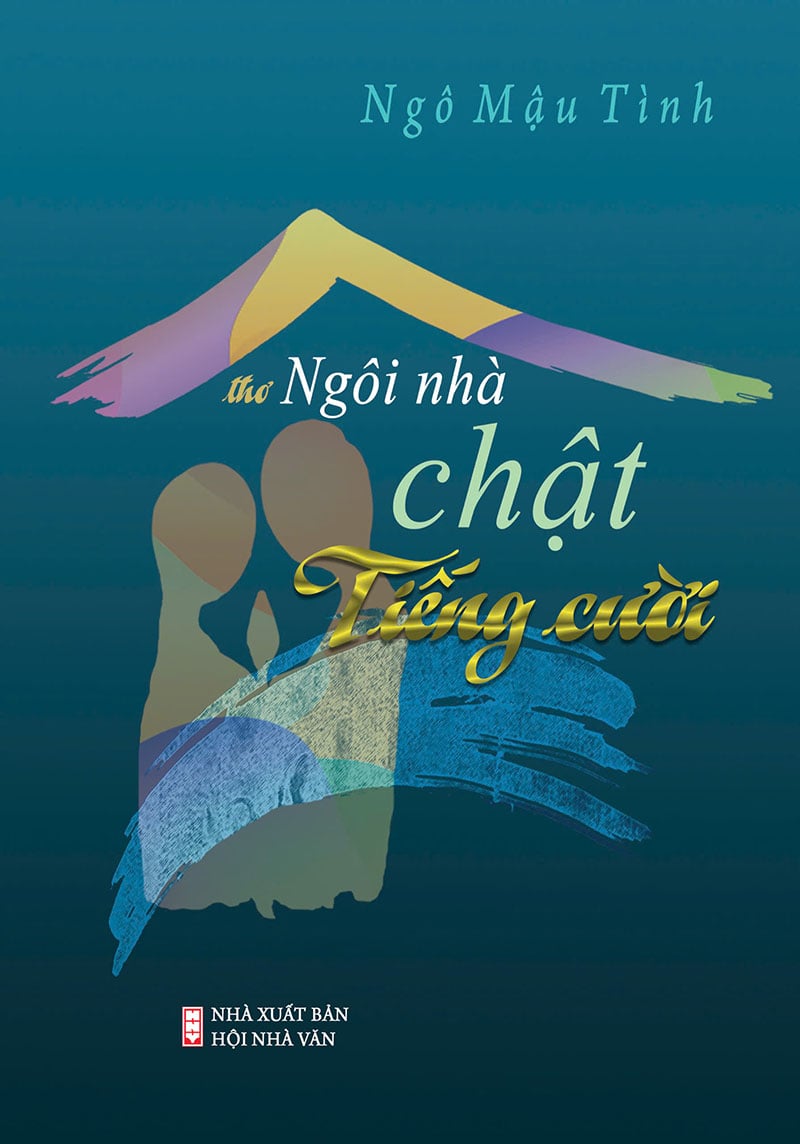 |
In the poem “Honest Meal” , the image of the father appears in simple symbols: “father’s eyes are filled with flood season silt/a raincoat is cold/the time when the fields were muddy in his hands” . The father appears in the middle of the fields, in the middle of the flood season, in the middle of hardship. Sometimes he “struggles before dawn” , sometimes “his lesson plans smell of gunpowder” and even “unconscious mud stains” (My Father). The father is the one who carries within him the memories of war and the responsibility of building the future. That is the symbol of the man of the Central region, in general and Le Thuy in particular, always frugal with words, hard-working and full of endurance.
Mother is a warm soul throughout the collection of poems. In the poem "Dream" , the image of mother appears in the harsh winter: "The wind covers the face of the field/The cold curls up the bowl of rice that mother cooked/Winter swirls each piece of flesh/The memory ferments" . Mother is the one who connects the earth to the sky, the one who plows and awakens the field with her thin shoulders and the dream of raising children: "My mother connects the plow with her creaking shoulders/She searches in the umbilical cord of light/Looking for the stranded fish/The field turns green" (The umbilical cord of light). Mother in Ngo Mau Tinh's poetry is not only the one who cooks rice and carries water, but also the one who gives birth to the universe, the one who creates life in the most primitive sense. That is the image of the land, the mother of nature, the original embrace that nothing can replace.
Together with family, homeland appears as a nostalgia that is both concrete and metaphysical. Kien Giang River is not only geographical but also a breathing memory: "Kien Giang lulls me to sleep with a song/fish and shrimp flock back/mother stands on the other side of the bank watching the water flow" (The River). That river is where the child used to bathe, catch fish, and hear his mother calling. It is also the flow of time, where ancestors "gather into hamlets and villages" , a place that preserves all that has been lost: "in the breathing/I hear the voices of ancestors opening the land and establishing a career/people returning to the land and grass/gathering into hamlets and villages" . The river not only flows with water but also with memories of the origin, a place of hard work, flooding but always reviving: "rice grains are divided equally/following the water to become green" (Following the water to become green). Ngo Mau Tinh did not paint an ideal homeland but realized it through hardship, through floods, through "human voices tearing through the darkness" , but always filled with the spirit of overcoming difficulties, solidarity, and blossoming in hardship.
A veteran poet commented: "Ngo Mau Tinh's poetry is a small, smoldering fire that does not burn brightly but persistently keeps life warm. There is love, memories, self-questioning and the desire to be good." To be fair, in my opinion, the collection of poems still has many "unripe" places as the author admitted. Many words and images are repeated without art that even the most dedicated editor could miss.
What is precious in Ngo Mau Tinh's poetry is that, although rich in surrealism and postmodernism, he does not lose his humanity. His poetry does not follow technique, but chooses to go against the depth of emotions. He does not fantasize suffering, does not embellish ideals, but chooses to place language in the midst of mud, in the furrows, between mother's tears and father's sweat. That is what makes the collection of poems not a product of art for art's sake, but a quiet, enduring testament to love, memory and life.
“The House Filled with Laughter”, the title sounds contradictory, but it is a metaphor for the life in the poor but affectionate countryside. It is not only the house where we live but also the “house” of society, the house of the pedagogical environment where Ngo Mau Tinh is working. A place where the house is cramped but love is always full, where laughter does not need to be loud but is enough to warm a person’s life. In that house, each verse is like a tile, a door frame, a handprint of the grandmother, of the mother, of the father, of the homeland, and of him - the teacher who both spreads knowledge in the mountains and writes poetry in the sound of the forest wind and the lullaby of his students. A place where human aspirations, where all pain and laughter bloom together.
Do Thanh Dong
Source: https://baoquangbinh.vn/van-hoa/202506/tho-ngo-mau-tinh-va-mach-chay-coi-nguon-yeu-thuong-2226962/






![[Photo] Panorama of the Opening Ceremony of the National Press Festival 2025](https://vphoto.vietnam.vn/thumb/1200x675/vietnam/resource/IMAGE/2025/6/20/6b835ee92c2c4df587af73cb2d1f4f5f)







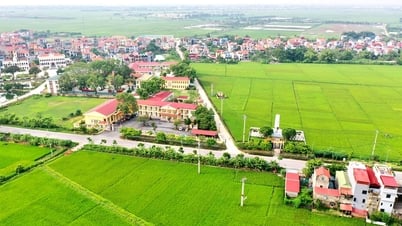








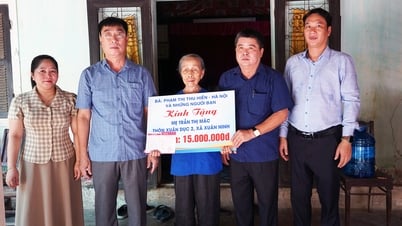
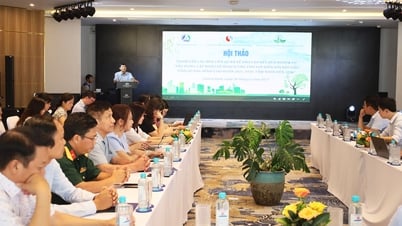
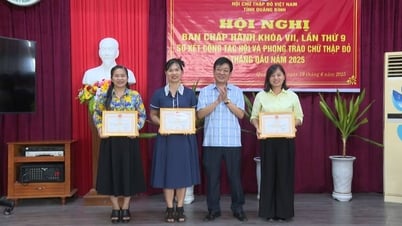
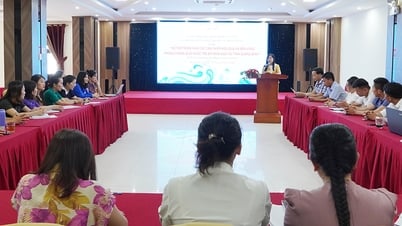


![[Photo] General Secretary To Lam chairs the 14th Central Military Commission Conference](https://vphoto.vietnam.vn/thumb/1200x675/vietnam/resource/IMAGE/2025/6/20/a9d25fc6dd664fb9a3757502f32e5db0)

























![[Maritime News] Wan Hai Lines invests $150 million to buy 48,000 containers](https://vphoto.vietnam.vn/thumb/402x226/vietnam/resource/IMAGE/2025/6/20/c945a62aff624b4bb5c25e67e9bcc1cb)


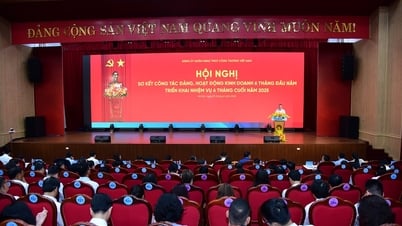







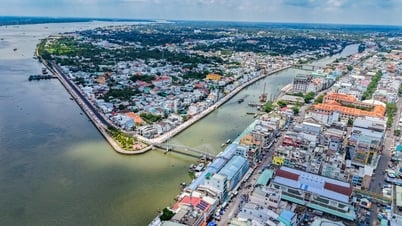


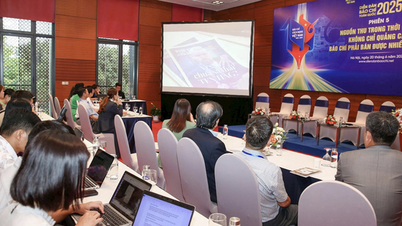

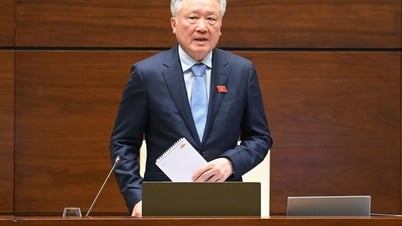





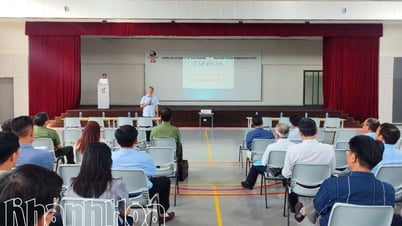



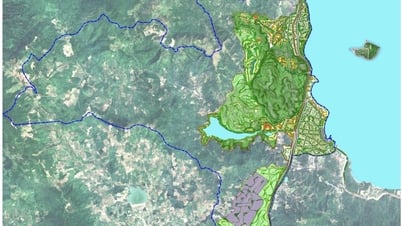
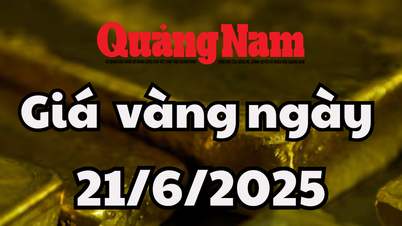
















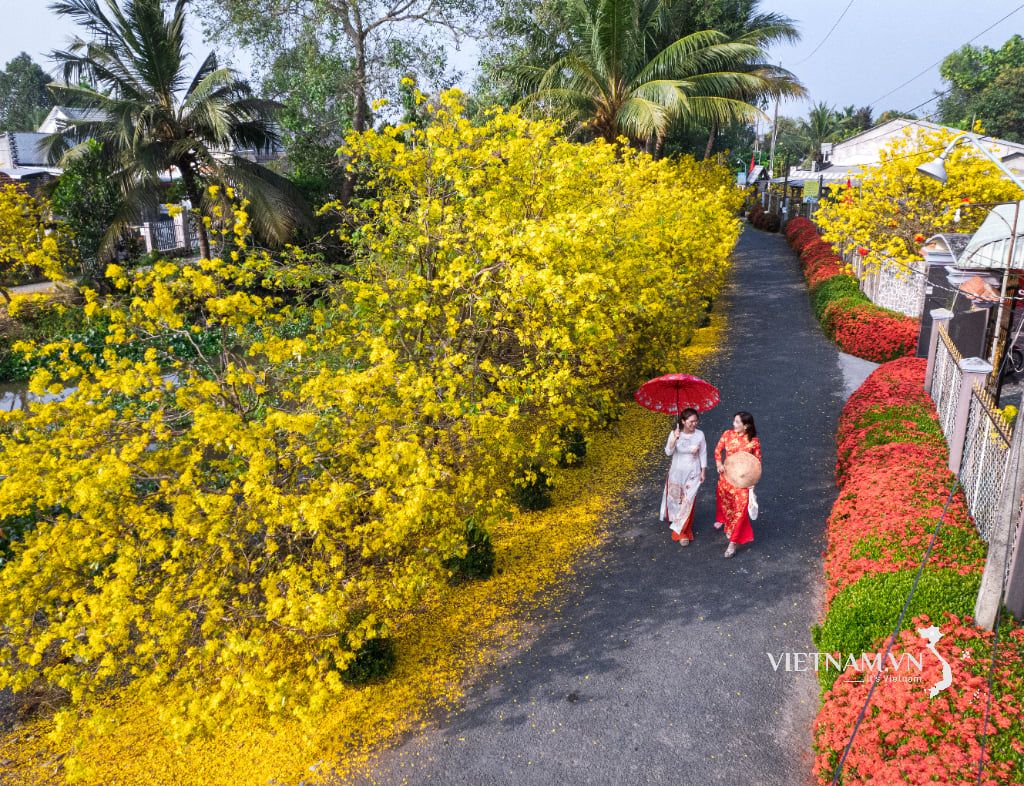
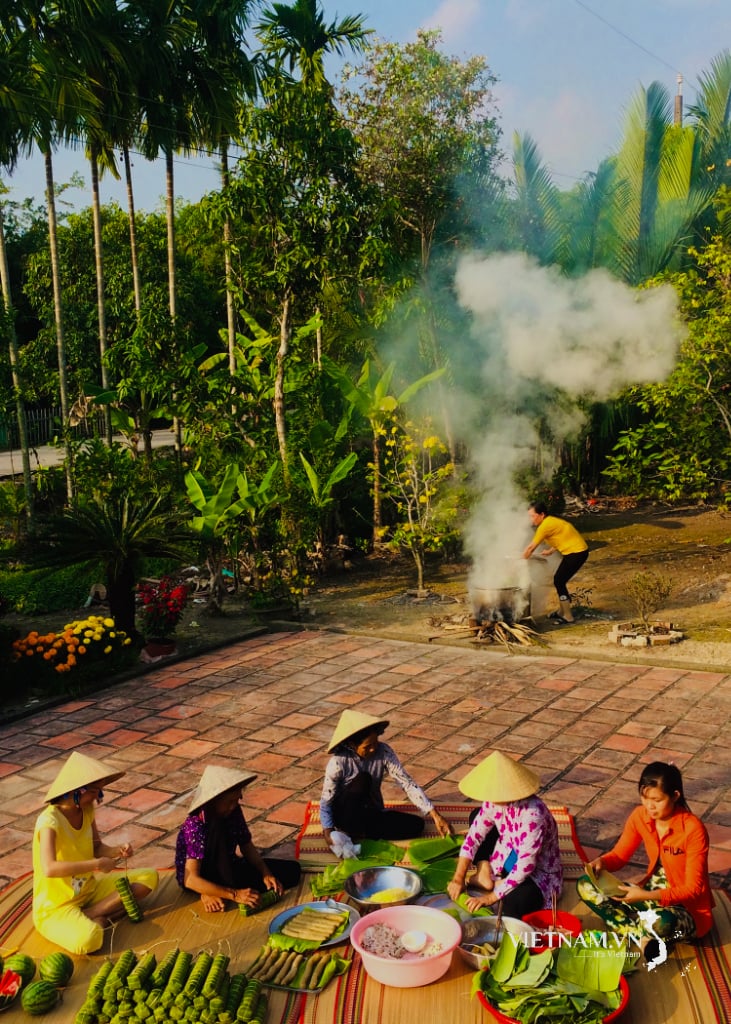
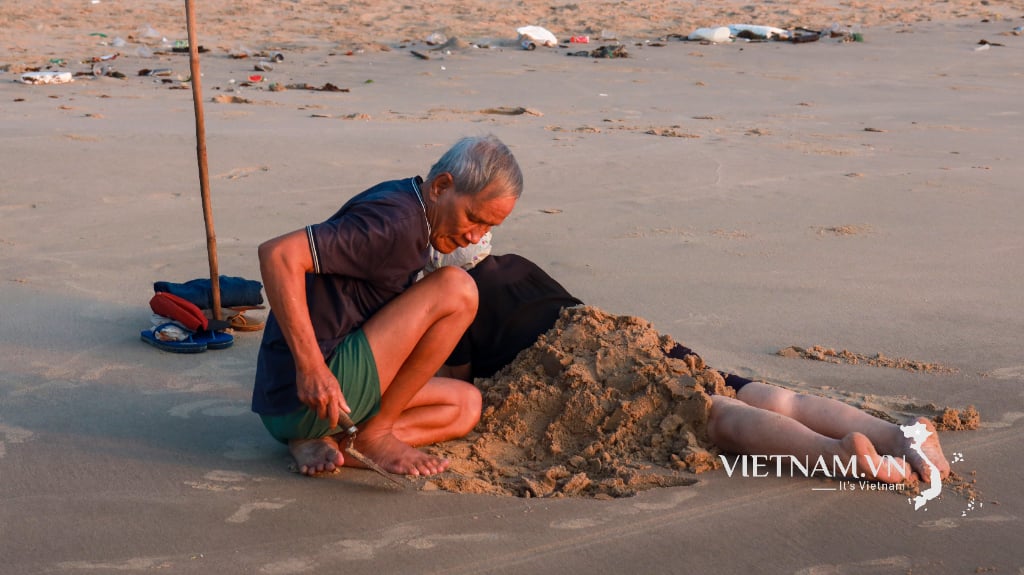
Comment (0)